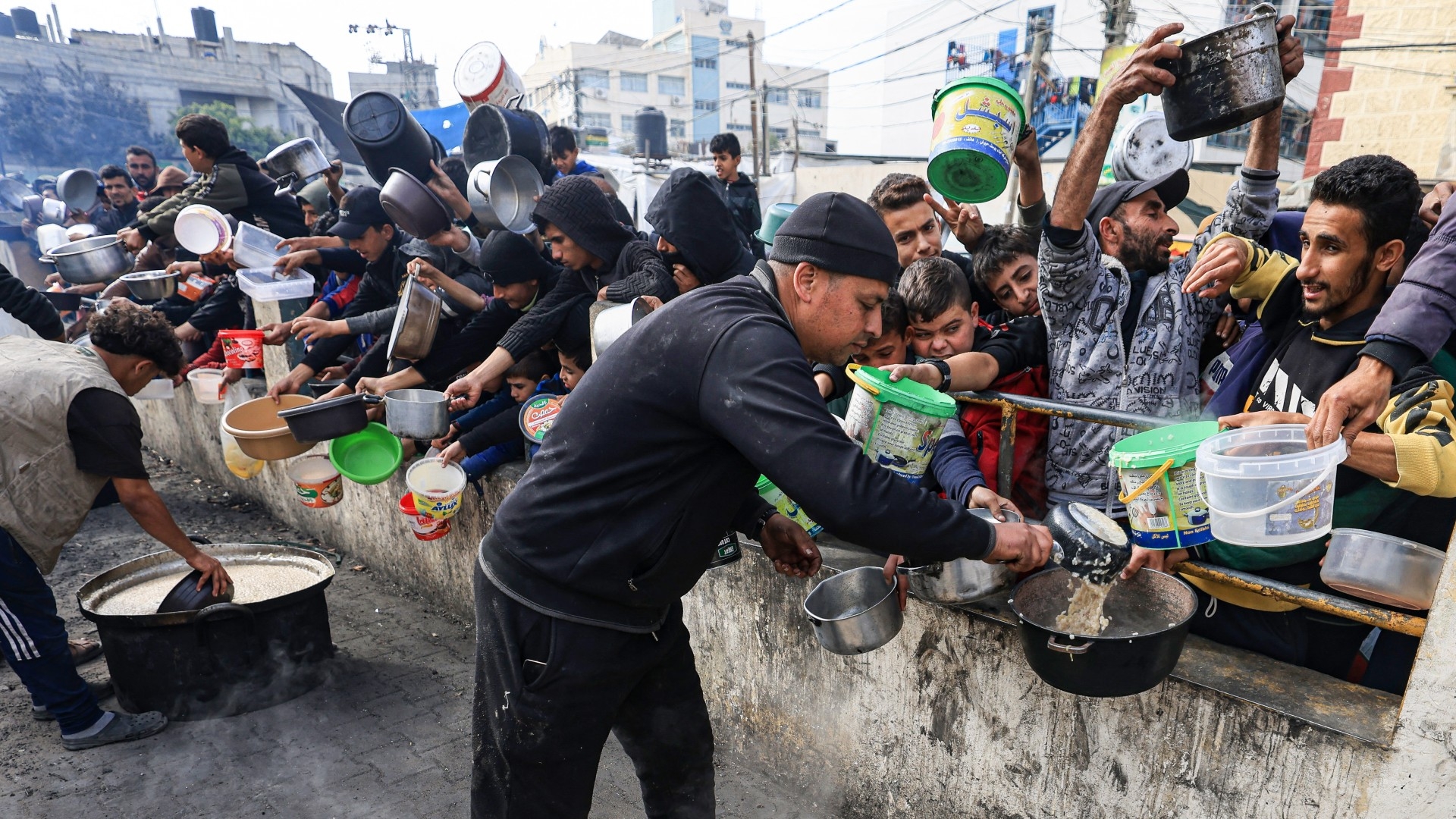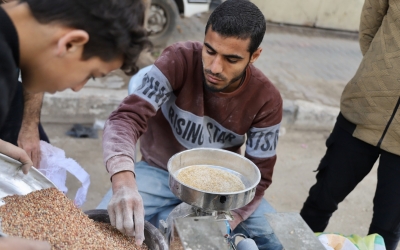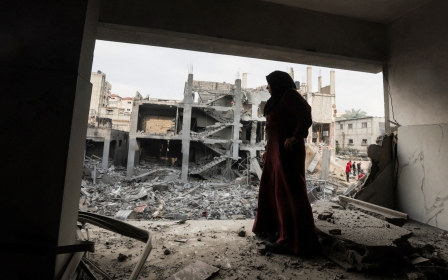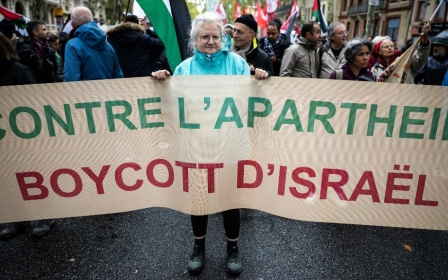War on Gaza: At least two Gaza babies die of starvation under Israeli aid blockade

At least two babies recently died of malnutrition and dehydration in Gaza, with aid organisations warning that Israel's denial of food and water into the Palestinian enclave may amount to a crime against humanity.
The Palestinian health ministry said on Tuesday that two babies died of malnutrition in northern Gaza's Kamal Adwan Hospital.
"We have begun to monitor deaths among babies as a result of dehydration and malnutrition in northern Gaza," said Ashraf al-Qudra, spokesperson for the ministry.
"Dehydration and malnutrition will kill thousands of children and pregnant women," Qudra said, adding that international organisations urgently needed to intervene to prevent a "humanitarian catastrophe".
Randa Ghazy, of NGO Save the Children, said Gaza was witnessing "the worst level of malnutrition worldwide".
New MEE newsletter: Jerusalem Dispatch
Sign up to get the latest insights and analysis on Israel-Palestine, alongside Turkey Unpacked and other MEE newsletters
"Pregnant women are not receiving the nutrition and healthcare they need, making them more susceptible to disease and increasing risks of death during childbirth," she told Middle East Eye.
"One of our staff members who is now in Rafah has spoken about his time in the north with no clean water - and how he would buy 7UP on the black market, shake it until the fizz was gone and add powdered formula milk to feed his baby.
"With a total lack of clean water this is what families are resorting to."
On Tuesday, the UN’s leading expert on the right to food accused Israel of deliberately starving Palestinians during its war on Gaza.
"There is no reason to intentionally block the passage of humanitarian aid or intentionally obliterate small-scale fishing vessels, greenhouses and orchards in Gaza - other than to deny people access to food," Michael Fakhri, the UN special rapporteur on the right to food, told the Guardian on Tuesday.
'Starvation is being used as a weapon of war against Palestinians living in Gaza'
- Sally Abi Khalil, Oxfam
"In my view as a UN human rights expert, this is now a situation of genocide. This means the state of Israel in its entirety is culpable and should be held accountable - not just individuals or this government or that person."
Sally Abi Khalil of Oxfam said denial of food is a serious violation of international law.
"Starvation is being used as a weapon of war against Palestinians living in Gaza. Virtually no aid is getting into Gaza, and whatever aid Israel might allow to trickle in is insufficient and cannot be safely distributed to civilians who are being forced to run for their lives," she told MEE.
"Denying civilians sufficient food, as well as water, fuel and critical humanitarian aid is a serious violation of international law, and collective punishment. It may also meet the threshold for the crime against humanity."
'Conflict-induced famine'
Maurizio Martina, deputy director-general of the United Nations Food and Agriculture Organisation, raised concern on Tuesday about the risk of "conflict-induced famine" during a UN Security Council session on Gaza.
Martina said that analysis from the latest Integrated Food Security Phase Classification (IPC) was "extremely troubling".
"The entire population of about 2.2 million people in the Gaza Strip is estimated to be in crisis or worse," he said, "the highest percentage of people experiencing such acute food insecurity that the IPC has ever classified".
During the session, the Security Council was told that Israeli bombardment had destroyed bakeries, farms and all means of food production. Delegates also described how some Palestinian parents were using animal fodder to satisfy their children’s hunger.
According to a report by Oxfam earlier this week, farmers in Gaza had their two-month-long "golden time" of agricultural production destroyed by Israeli bombing in northern Gaza.
Around a quarter of northern Gaza’s farm holdings have been completely destroyed by Israeli forces, which razed greenhouses and 70 percent of Gaza’s fishing fleets, according to the Palestinian Agricultural Development Association.
"There is an unprecedented level of food insecurity across Gaza as a direct result of Israel’s blocking of aid, destruction and indiscriminate bombing," said Abi Khalil.
"The beyond horrific conditions we are seeing in Gaza shows us that Israel is ignoring one of the key provisions of the International Court of Justice [ICJ], namely to provide urgently needed basic services and humanitarian assistance."
Last month, Israel was ordered by the Hague-based ICJ to abide by several provisional measures to prevent genocide against Palestinians in Gaza. One of the measures stated that it must ensure the provision of basic services and humanitarian aid into the Gaza Strip.
According to Amnesty International and Human Rights Watch, the number of aid trucks entering Gaza has in fact fallen by roughly one-third since the ICJ ruling.
"We need an immediate, definitive ceasefire and unfettered humanitarian aid access. Unfettered access means sufficient fuel to transport aid, keep vital medical, water and food services running, and to ensure communications capacity required to coordinate a response, as well as the opening of all access points," Ghazy said.
"The denial of humanitarian assistance is a grave violation against children."
Middle East Eye delivers independent and unrivalled coverage and analysis of the Middle East, North Africa and beyond. To learn more about republishing this content and the associated fees, please fill out this form. More about MEE can be found here.





